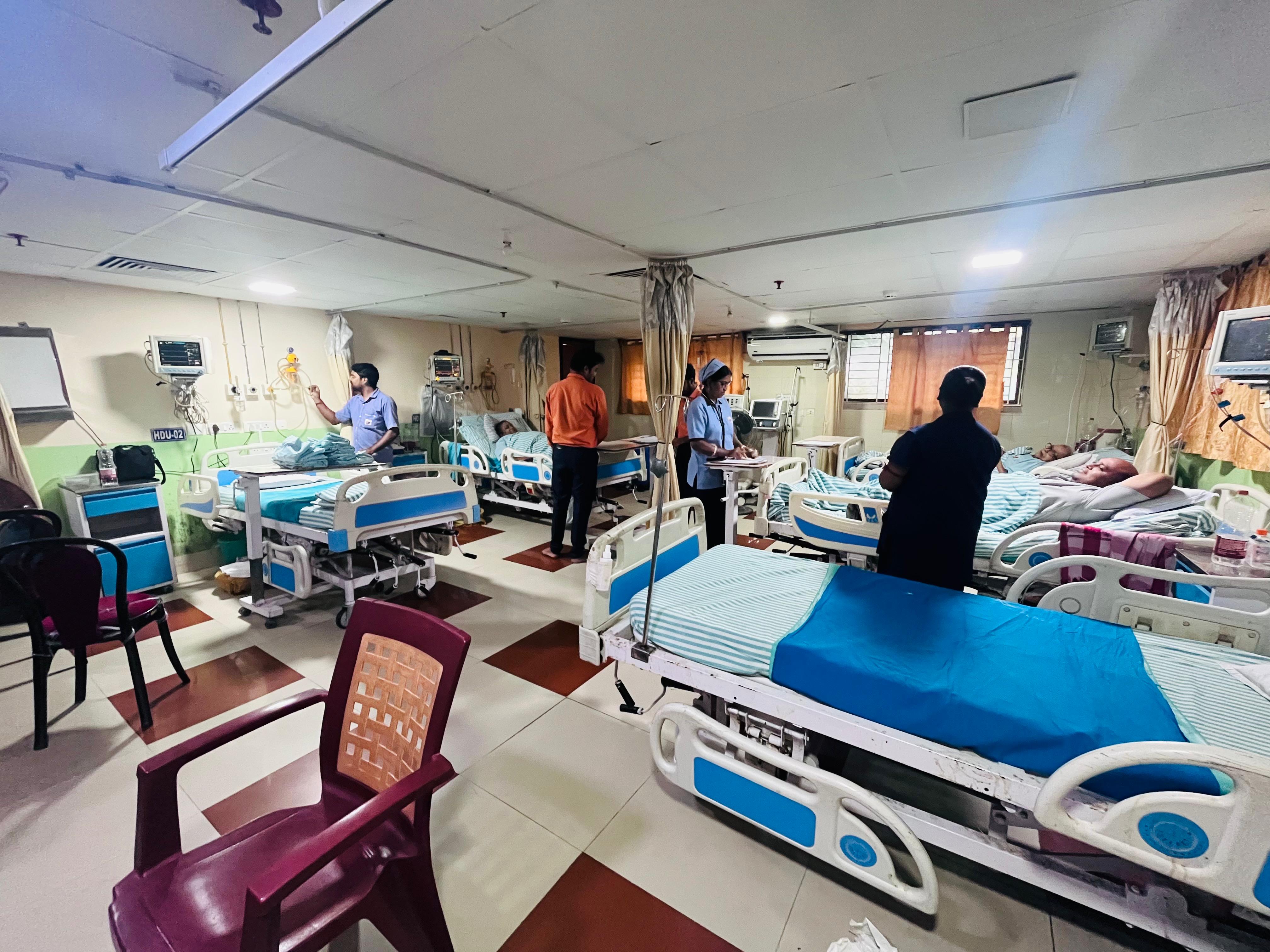
HDU (High Dependency Unit) is a specialized area in a hospital designed to provide intensive monitoring and care for patients who are critically ill or recovering from major surgery. It is an intermediate level of care between the general ward and the Intensive Care Unit (ICU), offering more intensive supervision than a regular hospital room but with less resource intensity than an ICU.
Key Features of an HDU:
Close Monitoring: Patients in the HDU require close monitoring of vital signs such as heart rate, blood pressure, oxygen levels, and respiratory status. The unit is equipped with advanced monitoring equipment to track these parameters continuously.
Specialized Care: HDUs provide care for patients who require more attention than those in general wards, but who do not yet need the high-level interventions provided in an ICU. This includes patients who are post-operative, have respiratory distress, or are at risk of complications.
Trained Healthcare Team: The HDU is staffed with highly trained nurses and doctors who specialize in providing care to critically ill patients. The team is equipped to respond quickly to any changes in a patient’s condition.
Comprehensive Support: Patients may require support for breathing (e.g., oxygen therapy or non-invasive ventilation), monitoring of fluid balance, and close observation for signs of complications. HDUs provide more personalized care than general hospital wards.
Intermediate Level of Care: While an ICU provides intensive care with life-support equipment, an HDU offers a level of care that can address the medical needs of patients who are not critically unstable but still require more than the routine care of a standard ward.
Transition Point: he HDU often serves as a transitional area for patients who are recovering from critical conditions, allowing for a gradual reduction in monitoring before they are moved to a regular hospital room.
© Lila Hospital PVT.LTD. All Rights Reserved.
Designed by WEB WORLD TECH